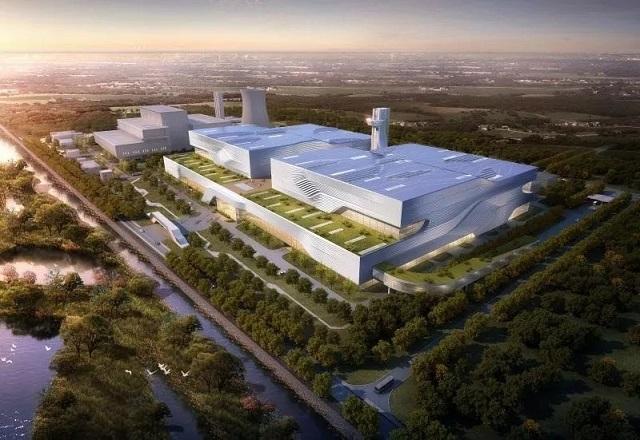World's Largest Waste Incineration Power Generation Project Launched in Shanghai
On June 28, the second phase of Shanghai Laogang Renewable Energy Utilization Center, which can incinerate 6,000 tons of garbage a day, was officially put into operation, bringing the total amount of garbage incinerated by Shanghai Laogang Renewable Energy Utilization Center to 9,000 tons a day and generating 900 million kilowatt-hours of electricity annually in the future, making it the largest garbage incineration power generation project in the world.

It is reported that the second phase of Shanghai Laogang Renewable Energy Utilization Center is a major environmental project built with world-class standards. The overall design, installation, materials, construction period and quality of the project are all up to the highest and best international standards. Since the start of construction, Shanghai Electric Power Construction has gone all out. Major engineering nodes such as steel beam lifting, steam drum in place, generator stator in place, rotor threading, turbine buckling, cooking stove, blowpipe, etc. have successfully completed all previous quality inspections and passed once.
After the completion of the project, it will further speed up the improvement and upgrading of garbage disposal facilities at the end of the project and accelerate the reduction, recycling and harmless treatment. The project will build eight waste incineration lines with a daily treatment capacity of 750 tons, capable of treating 6,000 tons of domestic waste per day, with an emission index that is better than the "EU 2000 standard"! By that time, the total amount of electricity generated by waste incineration will reach 900 million kilowatt hours every year, which will surpass AEB's waste incineration power plant in the Netherlands and become the largest waste incineration plant in the world.
As the mainstream garbage disposal method in the world, the garbage incineration power generation project is an important infrastructure for the sustainable development of the city and effectively controls the secondary pollution of domestic garbage. Garbage incineration power generation not only produces "environmental benefits", but also brings "energy benefits". The first phase of Shanghai Laogang Renewable Energy Utilization Center was completed and put into operation in May 2013. It can burn 3,000 tons of garbage a day and generate about 1 million kilowatt hours of electricity a day. The second phase of the project has been further improved and innovated on the basis of the first phase. In the next step, the first phase of the project will also undergo technological transformation.
It is understood that, in addition to the waste incineration power generation in the Laogang Renewable Energy Utilization Center, the landfill area also uses biogas to generate power. At present, the entire Laogang area has more than 200 million kilowatt-hours of electricity integrated into the national power grid every year, which has generated both economic benefits and social benefits. It is an effective way to build a resource-saving and environment-friendly society.
With the accelerated expansion of the city and the improvement of the living standards of the masses, the amount of garbage generated is also continuously increasing. At present, the production of municipal solid waste in China has exceeded 200 million tons a year.
Source: News Knews

- E-mail: cttcable@gmail.com
- 130 Jinsong 3rd Road, Lishonglang Community, Gongming Street, Guangming District, Shenzhen



